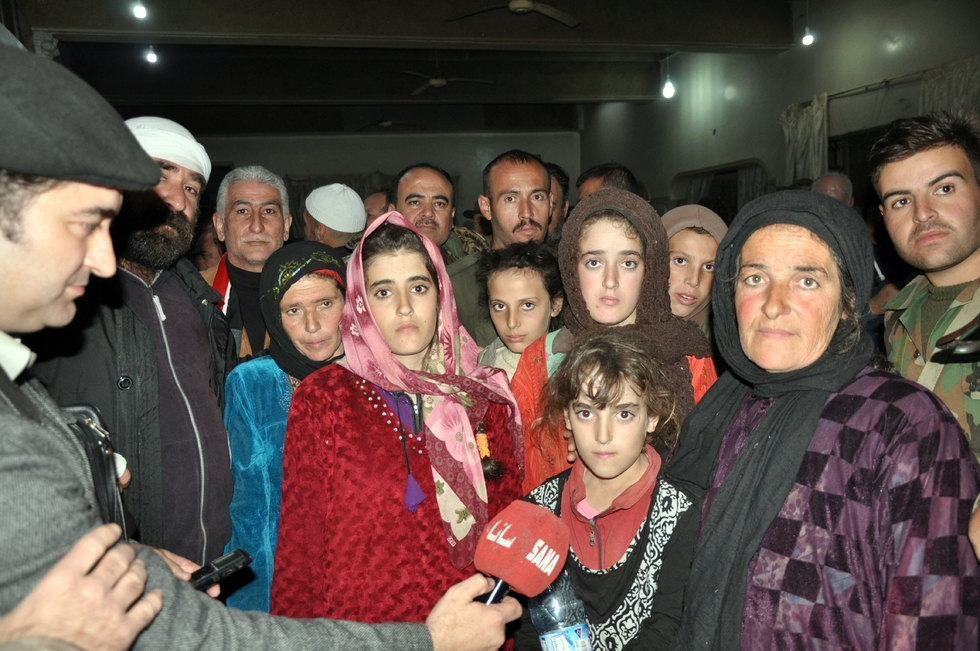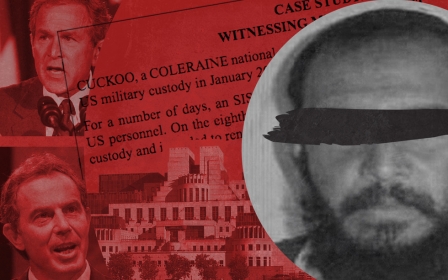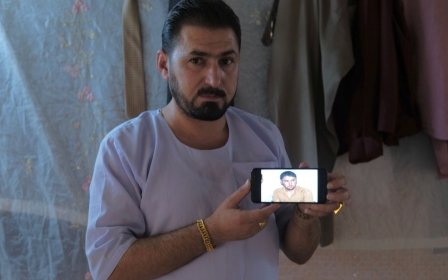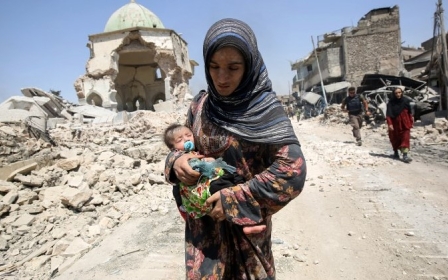'I’ve never felt this happy': Druze hostages freed from Islamic State in Syria's Sweida

A group of Syria's Druze minority who had been kidnapped in July by the Islamic State (IS) group returned home safely on Friday, a local media outlet reported.
Syrian state media announced on Thursday that 19 hostages had been freed following a military operation against the IS group in the southern province of Sweida.
But the head of local channel Sweida 24, Nour Radwan, said only 17 returned to their homes in the province early on Friday, indicating that two other hostages had died.
"Seventeen hostages returned," Radwan told AFP.
Two children were killed as they tried to escape the truck in which they were being held by IS during clashes with the Syrian army, Sweida 24 quoted a freed female hostage as saying.
They were aged seven and 13, Radwan said.
The release followed an earlier prisoner swap deal between IS and the government that saw the release of two adults and four children in October, local Druze said. At least three others died during captivity.
I can't even describe how I'm feeling. I’ve never felt this happy in my life
- Sweida resident
The Druze community had also been hoping that another woman would come home, Radwan said, after IS claimed they killed her in October but did not send proof. However, she did not arrive home.
"It seems that IS killed the woman at the beginning of October," Radwan said.
IS abducted about 30 people - mostly women and children - from Sweida in late July during the deadliest attack on Syria's Druze community of the seven-year civil war.
Hostages reunite with their relatives
Syrian state media said the mass liberation was the result of a military operation, but others insisted the 15-week hostage ordeal was ended thanks to a prisoner swap agreement.
Media reported that the freed hostages reunited with their relatives after more than three months of gruelling captivity, during which at least two of the group were killed.
Radwan told AFP the hostages were brought to a military base in the northern Sweida province, where they were met by family members. The freed hostages would next head to Sweida city, where dozens of people had gathered to welcome them home, said Radwan.
Syrian television broadcast images of women, boys, and at least one girl surrounded by men in military uniforms near a white pick-up truck in a desert landscape.
It said the images were broadcast from the desert near the ancient city of Palmyra in the centre of the country.
In Sweida, Jawdat Abu Omar was in his car rushing to the provincial capital to see his wife, eight-year-old daughter Shahad, and 13-year-old son Qusay.
"I can't even describe how I'm feeling. I’ve never felt this happy in my life," he told AFP over the phone.
"We'll be waiting for them," he said.
Radwan said the women and children were freed in a prisoner exchange deal.
"The freeing of the remaining hostages came as part of a prisoner swap deal, and today was the second stage of that deal," he told AFP.
More hostages
Two women and four children were released in October in a first step of the same agreement that also saw women and children related to IS fighters freed from regime jails, he said.
"The agreement provides for swapping those who were abducted for detained IS relatives in Syrian government jails," Radwan added.
"A first step saw the Syrian government free 25 detainees including 17 women and eight children related to IS."
The Druze community had been hoping for the return of 20 hostages, Radwan said.
IS executed a 19-year-old male student among the hostages in August and then a 25-year-old woman in early October. IS said a 65-year-old woman held by the group had died from illness.
In the 25 July attack, IS killed more than 250 people, most of them civilians, in a wave of suicide bombings, shootings, and stabbings across Sweida province.
Pro-government forces have since pressed a deadly battle against IS group on the volcanic plateau of Tulul al-Safa in the east of the province.
Syria's grinding civil war has claimed more than 360,000 lives since it started with the bloody repression of anti-government protests in 2011.
Sweida province is the heartland of the country's Druze minority, which made up roughly three percent of Syria's pre-war population - or about 700,000 people.
Middle East Eye propose une couverture et une analyse indépendantes et incomparables du Moyen-Orient, de l’Afrique du Nord et d’autres régions du monde. Pour en savoir plus sur la reprise de ce contenu et les frais qui s’appliquent, veuillez remplir ce formulaire [en anglais]. Pour en savoir plus sur MEE, cliquez ici [en anglais].




